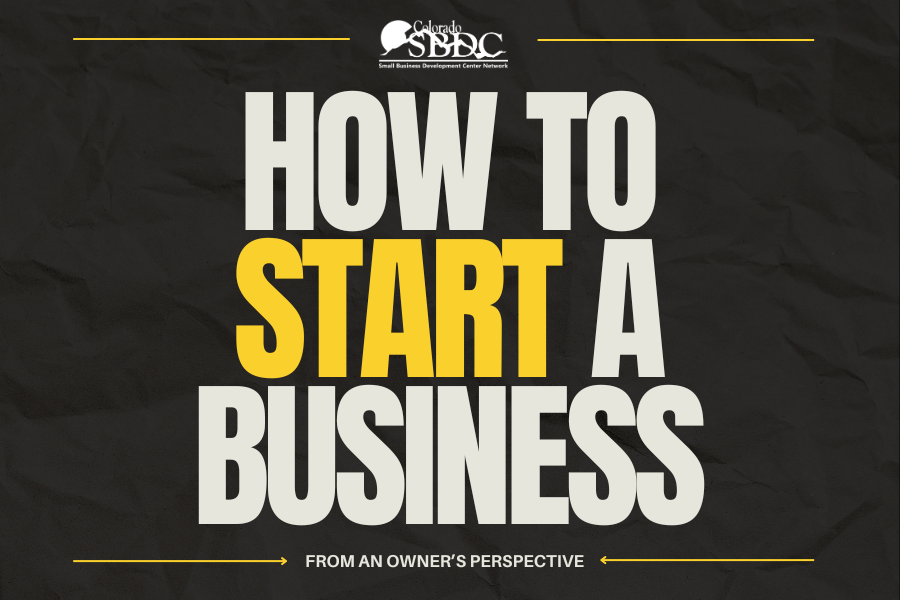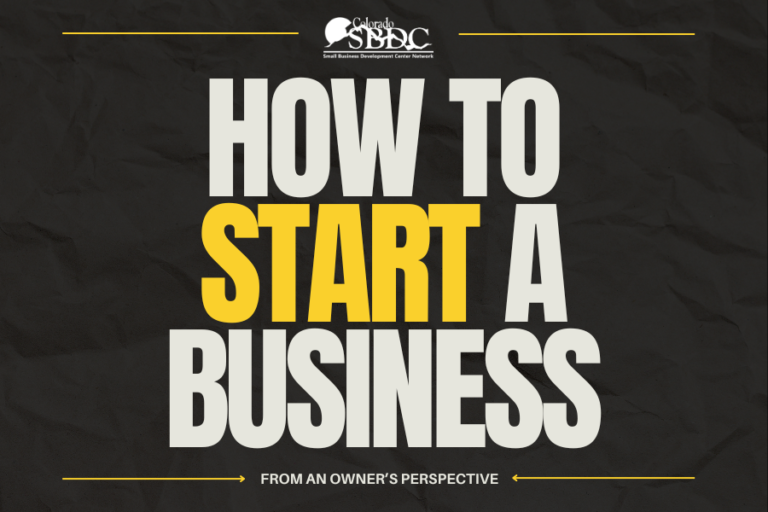
Becoming an entrepreneur is a courageous and ambitious endeavor, but don't overlook the work it takes to launch a business. The Colorado Small Business Development Center (SBDC) network is dedicated to helping existing and new businesses in Colorado grow and thrive by providing free and confidential consulting and free or low-cost training programs. The SBDC network's goal is to help new and existing businesses grow and thrive throughout Colorado. A business is considered small if it has 500 employees or fewer. If you're ready to start a business but don't know where to start, use this as a guide to help you get started.
We speak with one of our Aurora, Colorado-based companies about their journey as business owners and how the SBDC has been an invaluable resource. Fortified Development is a family-owned trucking and construction company run by husband and wife Monica and Arthur Gilbert and their son, Dayvon Hawkings. Monica speaks to OEDIT about how her family got started in the business and what it's like to be a Black-owned business in the trucking industry.
Monica, thanks so much for taking the time to talk to us about your business and your journey so far. My first question is, what inspired your family to become entrepreneurs?
Gilbert: Well, my husband, Arthur, has always been an entrepreneur. He's in real estate development and we've always worked together as a team. We basically wanted to start something new, so we zeroed in on the business plan and all that. It's really important to have a business plan to guide your idea, understand where your breakeven point is, and ultimately figure out what it takes to make a profit.
Why trucking? What first got you interested in this industry?
Gilbert: We were interested in helping people getting out of prison. It's the industry that's most lenient in reducing recidivism rates, so that was a big part of it. Trucking is also a good industry to invest in. You can expect to see a payback on your initial investment in 4-6 months.
How do I actually start a business? What are the steps?
Gilbert: That's a really good question. The first step is to understand why you're doing it. If your main reason for starting a business is money, you'll quickly become exhausted. We're in this business because of our values; that's what drives us. Step two is to focus on identifying potential competitors. Once you know what you're doing, you need to spend time identifying people who are doing the same thing as you, or something similar.
Having a competitive advantage is important to differentiate your business. If there were four Italian restaurants on a street and they all offered the exact same thing, it would be very hard for all of them to be successful. Italian cuisine is very broad, so one restaurant might specialize in Italian seafood, another might focus on pasta, etc. The key is to understand all your competitors and make sure your business stands out and is different.
Step 3 is when you start writing your business plan. This is where you decide what structure your business will have: an LLC, corporation, partnership, etc. The SBDC is helpful as they provide great guidance on this. An LLC is a good structure because it protects small businesses and puts you in a favorable position from a tax perspective. Each business owner should research which business structure is best for them. Once you have your business plan complete, you will get an Employee Identification Number (EIN), which is basically a Social Security number for your business. From here, you will need to actually register your business with the Secretary of State and get the necessary certifications to operate your business.
Once you have the structure for your business, it's time to decide how you're going to fund your business and start figuring out your financial needs. Next, you need to open a bank account, which requires all of the information you've spent time setting up as part of your structure. From there, determine all of the systems you need, such as Quickbooks. Finally, marketing is needed to let people know you exist and that you're ready for business. Since we started as a trucking company, we became members of different trucking and construction companies so we could network. We were connected with the Black Chamber of Commerce. The networking part is critical to success.
When did you get your first client?
Gilbert: We started in long-haul trucking and then expanded into construction. It took us about a year to gain customers in that space. It's all about relationship building.
Can you talk about some of the challenges you've faced as entrepreneurs?
Gilbert: For us, finding mentors and sponsors is a challenge. Access to capital is obviously a challenge due to the nature of our industry. It's a cutthroat industry, with 87% of Americans dependent on the trucking industry. As a Black and women-owned business, we face bias. Having a strong network of advocates, mentors, and others really helps navigate these situations. Relationships matter in our industry.
Would you recommend future entrepreneurs take advantage of SBDCs?
Gilbert: Absolutely! The SBDC was always available and extremely helpful when we first started our business. They pushed us to make sure our business plan was solid and connected us to training and programs to help us get started.
Andrea Chichisola is the SBDC's Small Business Navigator. She is the first point of contact for Colorado entrepreneurs and small business owners.
Chichizola: At SBDC, we provide support and information to help entrepreneurs make the right decisions for their business. The benefit of working with SBDC is that as a state government agency, we have connections with all state agencies. Business owners can turn to SBDC for advice on where and how to register their business, how to incorporate their business with the Department of Revenue for tax purposes, how to obtain necessary licenses, permits, etc. from the Department of Regulatory Agencies. We are a free resource to help entrepreneurs navigate their journey to starting a business.
To learn more about the small business environment and support for entrepreneurs, visit the SBDC website at https://sbdc.colorado.gov/.

